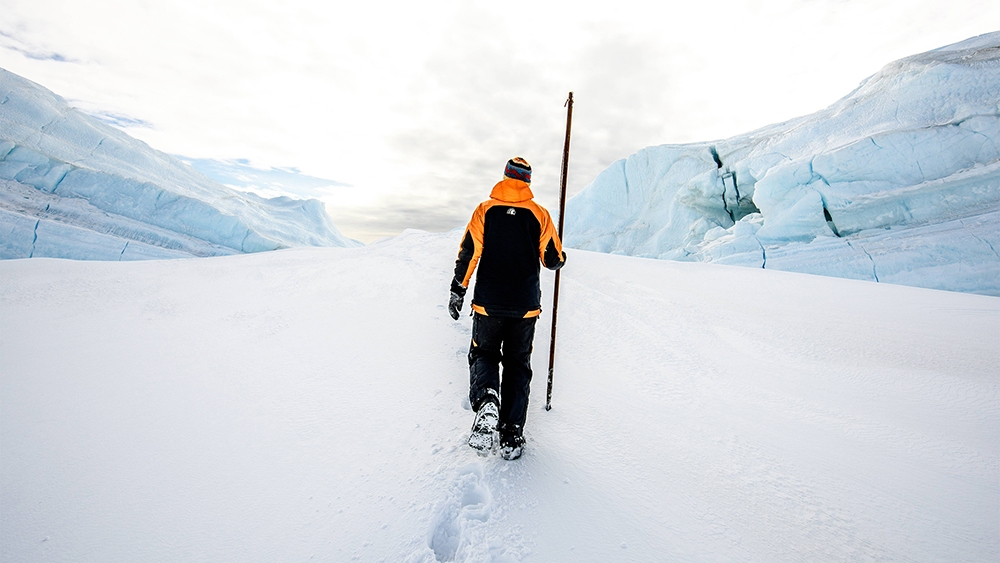Jonny Chard | News Editor
Featured image: Christian Haas and his team from Memorial University will be the focus of a National Geographic episode airing February 18. | Courtesy of National Geographic
Christian Haas and his team are not only measuring the thickness of Arctic ice, but also the height of their funding.
Lassonde professor Haas and his colleagues from Memorial University have been awarded a $400,000 Arctic Inspiration Prize for their work on SmartICE.
The SmartICE project, which stands for Sea-ice Monitoring And Real-Time Information for Coastal Environments, was developed as a means of measuring ice thickness.
Haas is responsible for contributing the electromagnetic measurements from sensors that are carried on sledges behind snowmobiles.
He states that these near-real-time readings allow travellers in the Arctic to safely plan ahead regarding the safety of shipping and travelling conditions.
“With climate change, landfast ice is becoming thinner, putting Arctic communities who rely on sea ice to access food and maintain cultural and family activities at risk,” he says.
The objective is to integrate these sensors onto SmartQAMUTIQs, or smart sledges, that will be utilized by locals, Canadian rangers and the military.
The annual prizes are awarded to multidisciplinary teams who make a substantial contribution to the gathering of Arctic knowledge and create a plan to benefit the Canadian Arctic and its peoples.
Haas and his team are also the focus of a National Geographic episode, Continent 7: The Arctic, which will air this February.
The episode follows the team on their expedition to survey the southern Ross Sea, an area of particular interest due to a layer of loose ice crystals, or platelets, below the ice.
“The combination of exciting science with unique aircraft measurements and the challenges and struggle of those measurements are very attractive for National Geographic. It was also good to work with their team to communicate the research and challenges effectively and excitingly,” says Haas.
Haas notes that the award recognizes an engagement beyond scientific publications and research ambitions.
“The prize gives us significant new opportunities to continue and expand the SmartICE project,” he adds.
Regina Lee, the chair of the Department of Earth and Space Science and Engineering, says that Haas’ research exemplifies Lassonde’s focus on research that has a positive social impact.
The National Geographic episode featuring Haas and the SmartICE project is due to air Saturday, February 18.


